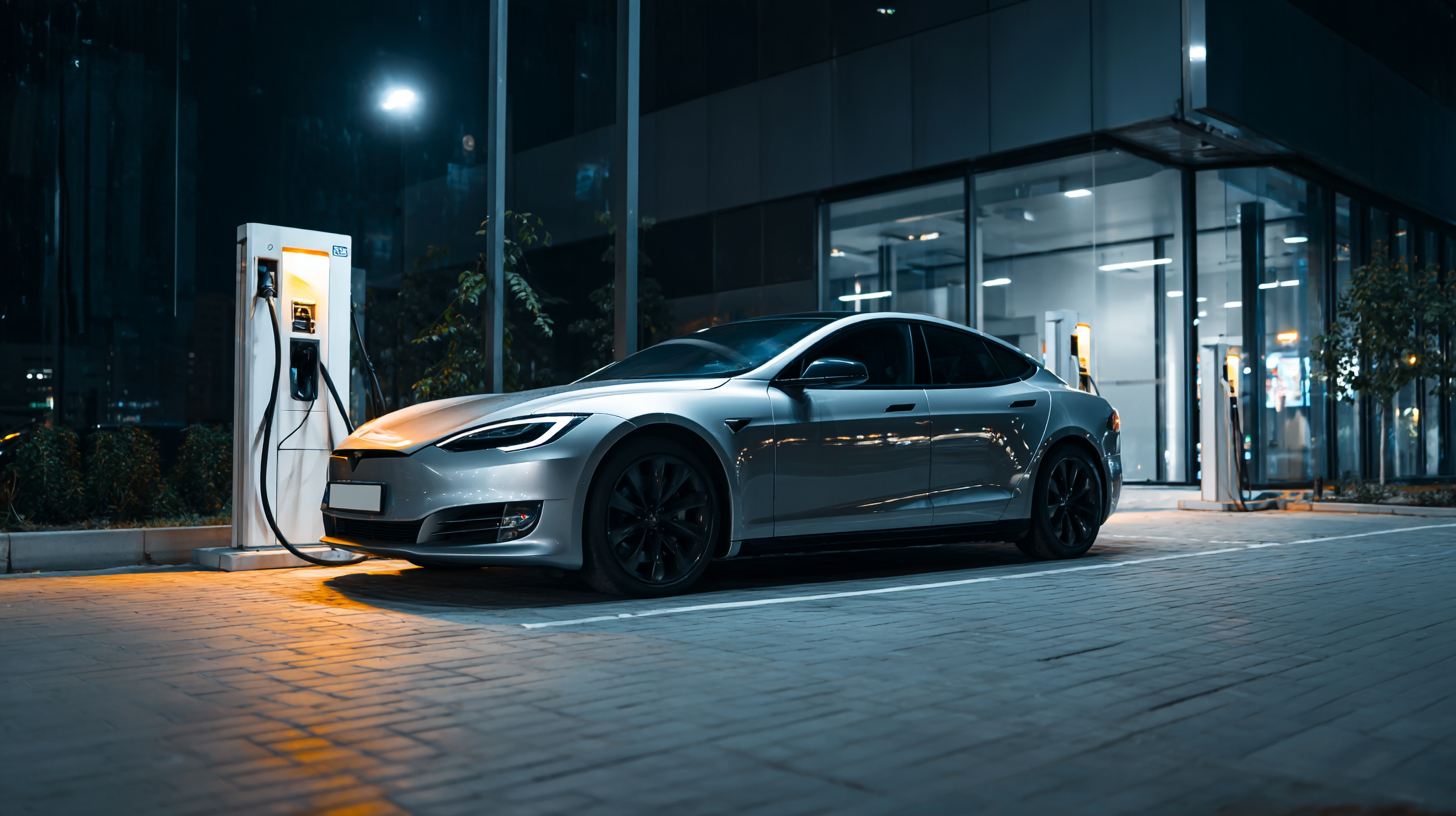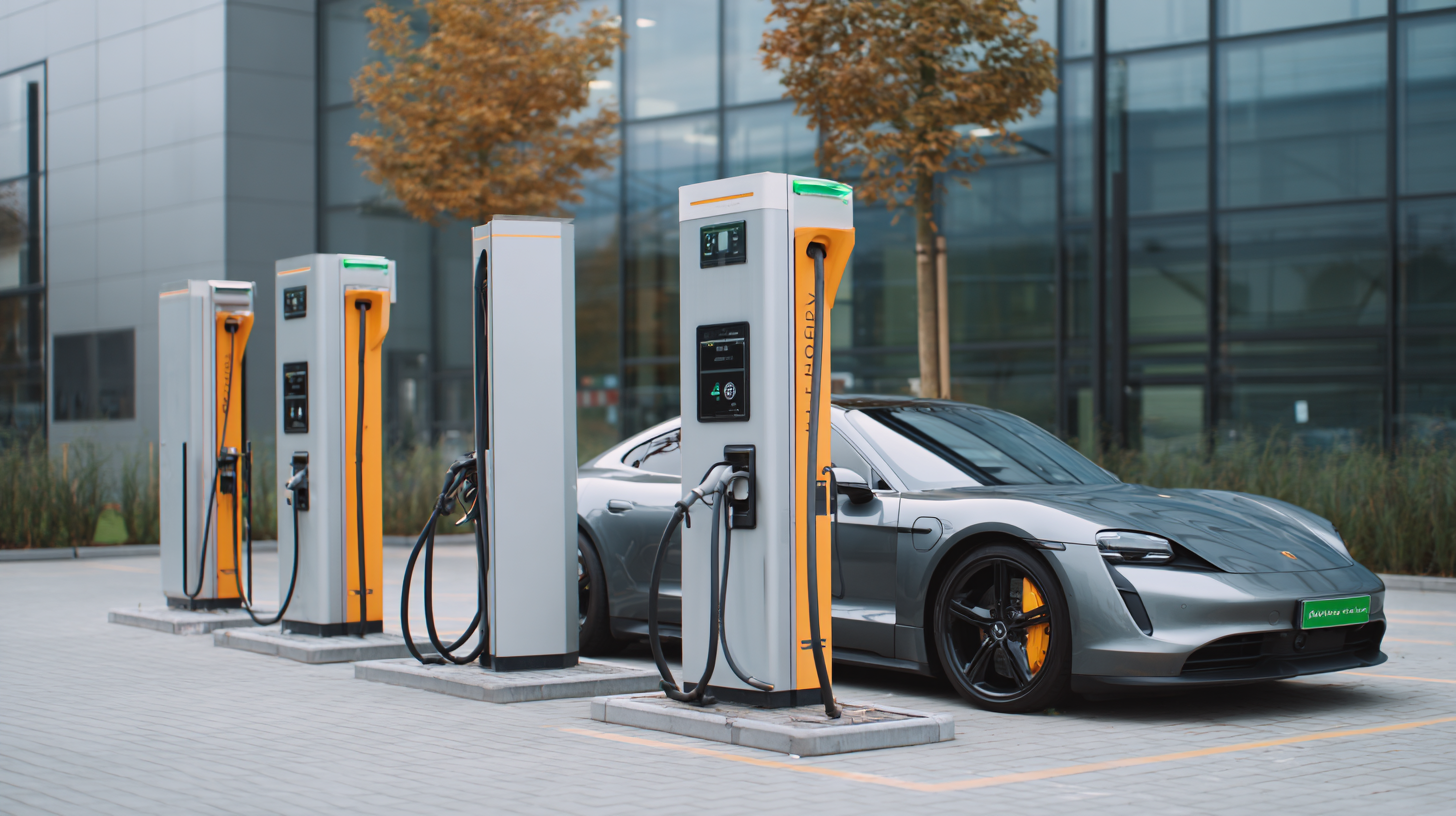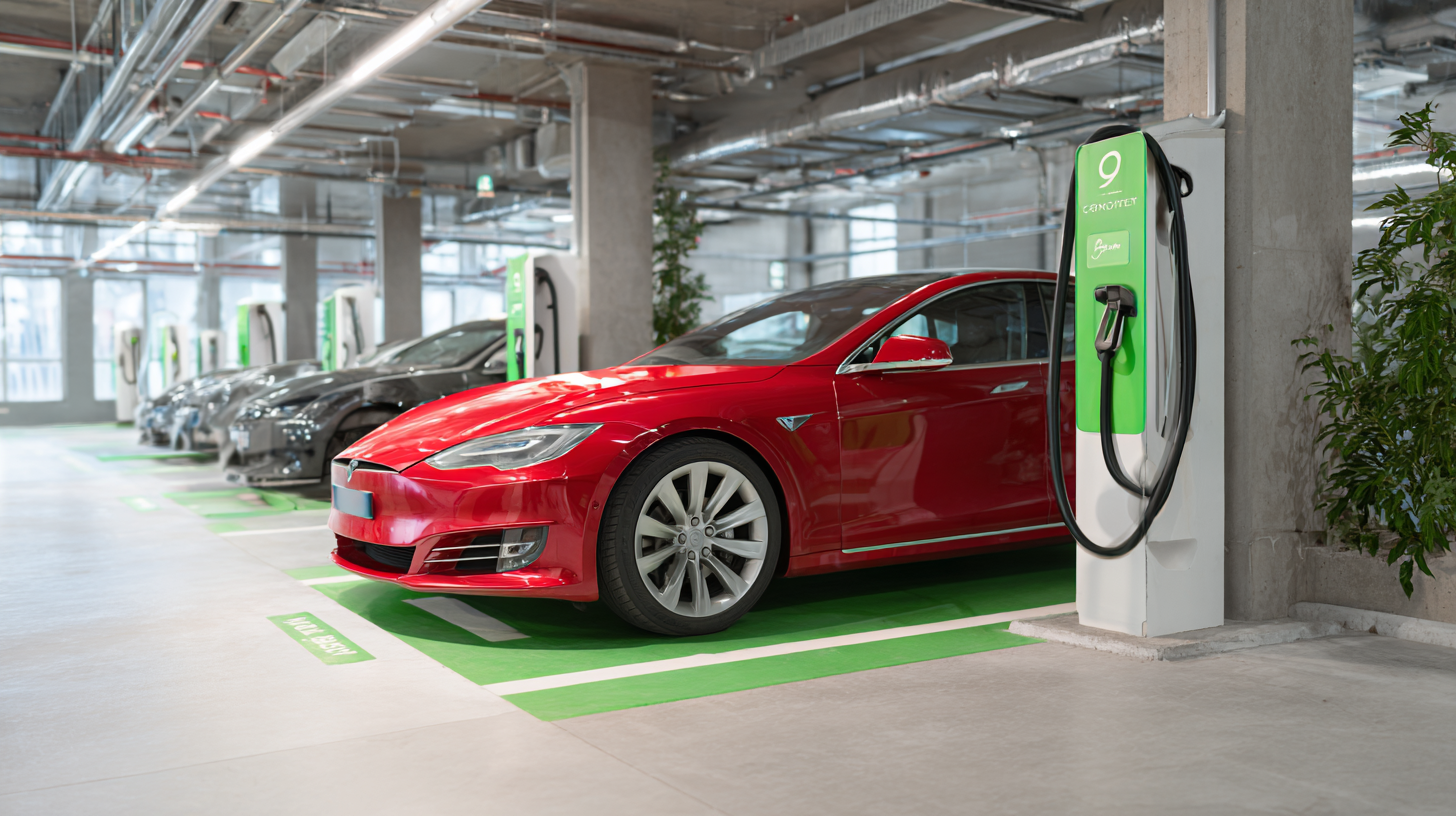As businesses strive to adapt to evolving environmental regulations and the increasing demand for sustainable practices, the importance of choosing the right Commercial EV Charger cannot be overstated. Recent studies indicate that the global market for electric vehicle charging infrastructure is projected to reach USD 140 billion by 2030, reflecting a CAGR of 34.6% from 2021 to 2030. This growth is largely driven by the surge in electric vehicle adoption, which is expected to surpass 250 million worldwide by 2030.

With various charger types available, each tailored to specific business needs, understanding their unique features and applications is crucial for optimizing your investment. In this ultimate guide, we will explore the different types of commercial EV chargers, their benefits, and how to select the best fit for your unique business operations.
When choosing the best commercial EV charger for your business needs, it's essential to understand the various types of chargers available and their specific applications. Commercial EV chargers generally fall into three categories: Level 1, Level 2, and DC fast chargers. Level 1 chargers are suitable for overnight charging in locations with low vehicle turnover, while Level 2 chargers offer faster charging and are ideal for retail spaces and fleets. DC fast chargers, on the other hand, are critical for high-traffic areas as they allow rapid recharging, minimizing downtime for users.
Tips: Assess your business's needs and the types of EVs you expect to charge. For instance, if you cater to a fleet of taxis or delivery vehicles, investing in DC fast chargers will significantly enhance operational efficiency. Additionally, consider the location of your chargers; chargers in visible areas can attract more customers.
As the demand for EVs continues to rise, investing in the right charging infrastructure is crucial. Awareness of local regulations and potential grants can further ease the setup process. With the right strategy, your business can not only accommodate current EV users but also position itself as a leader in sustainable practices.
When selecting an electric vehicle (EV) charger for your business, it's crucial to consider several key factors to ensure it meets your operational needs and enhances your customers' experience. First and foremost, you'll want to assess the charging speed that aligns with your business type. Fast chargers might be ideal for businesses with high turnover, like retail locations, where customers won't spend long periods parked. Conversely, level 2 chargers can be suitable for workplaces, where employees may charge their vehicles during working hours.
Another important consideration is the compatibility with various EV models. The charger should support multiple connector types to accommodate different vehicles, ensuring broader usage and higher customer satisfaction. Additionally, it’s beneficial to look into the charger's payment and billing options. A seamless payment system can make the charging experience easier for your users and help your business manage costs effectively. Finally, evaluate installation requirements and available space, as these factors will influence the overall feasibility of adding EV charging stations to your business infrastructure.
| Feature | Description | Importance Level |
|---|---|---|
| Charger Type | Level 2 (AC) or DC Fast Charger | High |
| Charging Speed | Power output in kW | High |
| Connectivity | Wi-Fi, Ethernet, mobile app integration | Medium |
| Payment Options | Credit card, RFID, mobile payments | High |
| Installation Requirements | Electrical capacity, physical space | Medium |
| Warranty & Support | Length of warranty, customer service quality | High |
| Compliance & Standards | Local regulations, safety certifications | High |
When selecting a commercial EV charger for your business, understanding the impact of charging speed on operations and customer satisfaction is crucial. Faster charging options can significantly minimize downtime for fleet vehicles and enhance customer convenience. For instance, if your business relies on delivery vehicles, the ability to quickly recharge can optimize operational efficiency and ensure that goods reach their destinations on time.
 Fast chargers reduce the time a vehicle spends plugged in, allowing businesses to maintain a steady flow of operations, and ultimately, increasing productivity.
Fast chargers reduce the time a vehicle spends plugged in, allowing businesses to maintain a steady flow of operations, and ultimately, increasing productivity.
Moreover, customer satisfaction is closely linked to the charging speed offered at your facility. Customers are increasingly seeking locations where they can quickly charge their EVs while going about their daily routines. By providing faster charging solutions, you not only meet customer expectations but also create a competitive edge in the market.
Businesses that can offer swift, reliable charging services often see increased foot traffic, as customers are drawn to establishments that cater to their needs.
In essence, investing in fast-charging technologies not only benefits operational effectiveness but also elevates the overall customer experience, solidifying your position in the rapidly growing electric vehicle landscape.When considering the installation of commercial EV charging stations, evaluating costs and infrastructure needs is crucial for businesses looking to stay ahead in the evolving electric vehicle market. The initial investment for a charging station can vary significantly based on factors such as the type of charger, installation complexity, and local regulations. Businesses need to conduct a thorough cost analysis, including equipment purchase, installation labor, electrical upgrades, and potential permitting fees. Identifying available incentives or grants can also offset upfront expenses.
Beyond the financial aspects, assessing the existing infrastructure is equally important. Companies must analyze their power supply limitations and consider whether upgrades are necessary to support the new charging stations. This includes evaluating transformer capacities, circuit breakers, and overall electrical load. Additionally, site layout and accessibility for EV owners should be contemplated to ensure safe and convenient charging. By carefully considering these elements, businesses can create a seamless EV charging experience that aligns with their operational goals and supports sustainable practices.

When considering the installation of commercial EV chargers, understanding government incentives and financial assistance options can significantly reduce upfront costs. Various local, state, and federal programs exist to encourage businesses to adopt electric vehicle infrastructure. These incentives often come in the form of tax credits, rebates, or grants, which can make a substantial difference in your overall investment. Businesses should thoroughly research available programs in their area, as these incentives can vary widely depending on location.
**Tip:** Keep an eye on changing legislation and announcements from government bodies regarding new incentives. Connecting with industry associations or local chambers of commerce can provide valuable insights and updates on potential funding opportunities.
Additionally, many utilities offer programs that can assist with the costs associated with the installation of charging stations. They may provide rebates for equipment purchases or incentives to offset installation expenses. Understanding these utility programs can lead to significant savings while enhancing your business’s commitment to sustainability.
**Tip:** Consult with your utility provider to explore any programs they may have that support EV charger installations. They can often offer tailored advice and assistance in navigating financial incentives.
Understanding the financial incentives available for businesses installing EV chargers is crucial. The following chart presents data on various government incentives and grants available for commercial EV charger installations.








